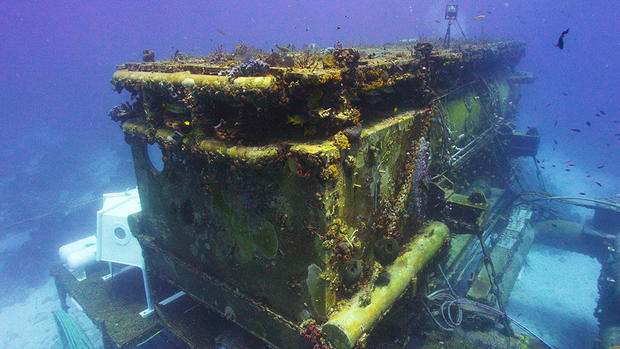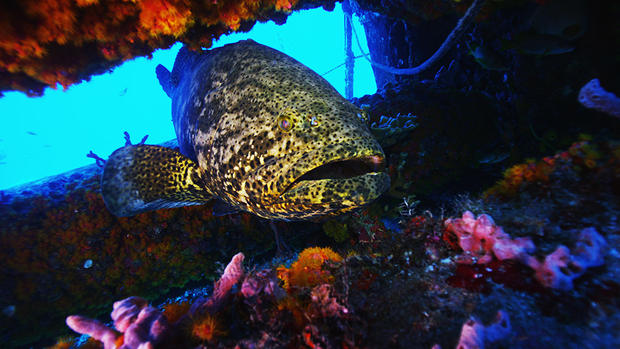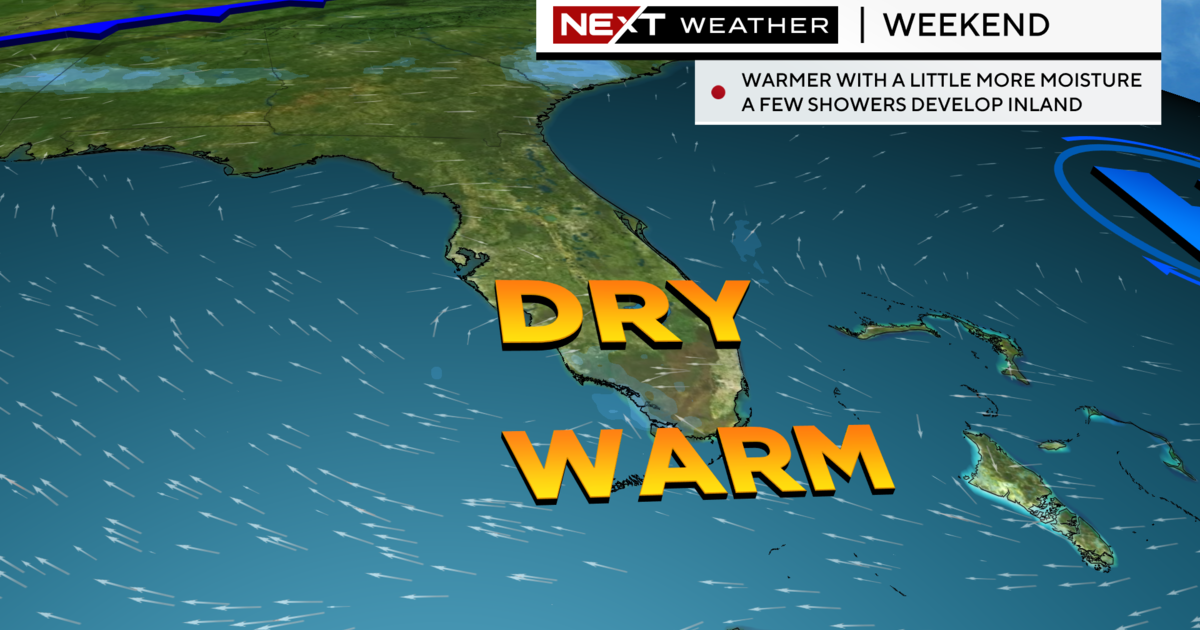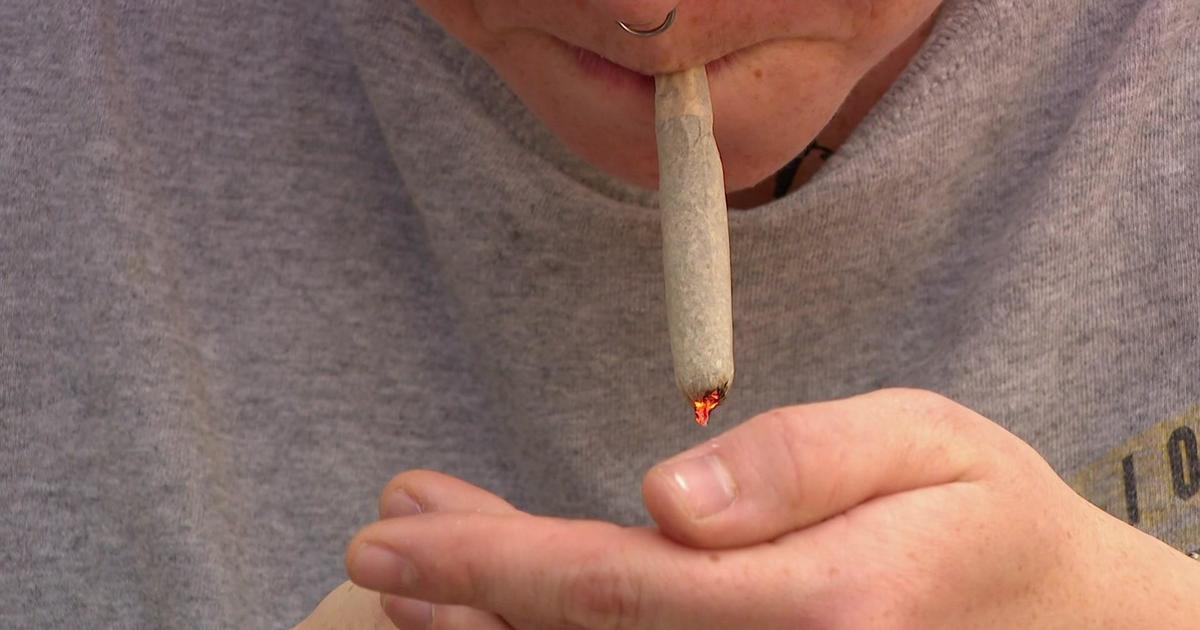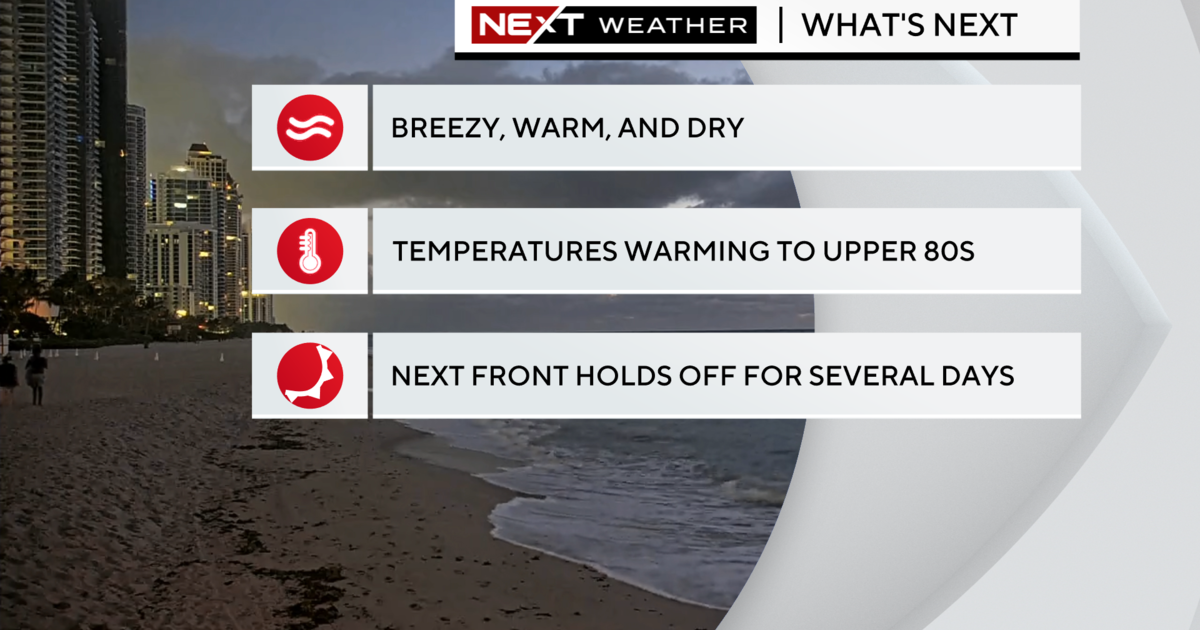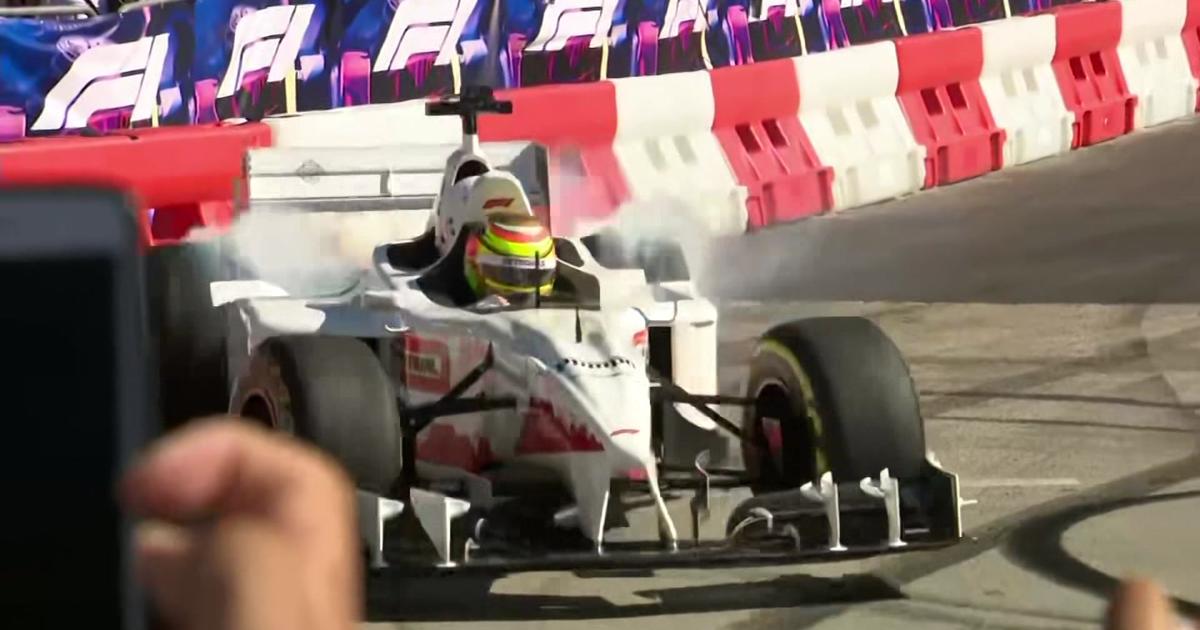CBS4 Goes Under The Sea With Fabien Cousteau
KEY LARGO (CBSMiami) -- When Fabien Cousteau woke up today he did all the normal things you and I would do. Except he did it in the most unusual of places; at the bottom of the ocean.
The grandson of famed ocean explorer Jacques Cousteau is attempting to break his grandfather's record by spending 31 days underwater. He's doing it twice as deep as well. When CBS4's David Sutta checked in on him recently he seemed to be having a blast living under the sea.
Cousteau is staying in what may be the most remarkable waterfront property in the entire world. A place where nosey neighbors with scales are more than welcome.
"This morning we woke up and I looked out the window and one of those goliath groupers was looking into the porthole checking us out!" Fabien told Sutta as he sipped his morning coffee 63-feet below the surface.
SLIDESHOW: DAVID SUTTA GOES UNDER THE SEA WITH FABIEN COUSTEAU
He has spent the last three weeks living in the fish bowl known as Aquarius. It's only undersea laboratory in the world. He equates it to outer space. "Very much like an international space station mission. This is the inner space station," Cousteau said.
LIVING UNDERWATER
The lab, roughly the size of a school bus, is about 50-feet below the ocean's surface, about 3 miles off Key Largo. Inside are all the conveniences of a small apartment. A stocked kitchen, air conditioning, even Wi-Fi pumped in from the surface.
Six people share the space. Each gets a bunk. Sutta asked if anyone is getting any sleep. Cousteau laughed and replied, "There are many snorers in the group. But we are so tired because we wake up at 5 o'clock in the morning and we go to bed at 11 o'clock at night. At 11 o'clock at night it takes about 30 seconds and we are all out!"
Everything from food to dry towels is delivered by boat. It's sealed in a large pot and hand delivered by scuba divers daily.
Cousteau looks out the window then up towards where the sun should be. "It's strange. I actually don't miss much up there. I am very comfortable down here."
Maybe it's in the genes. Cousteau is following in the fins of his grandfather. Jacques Cousteau lived very much like this as an underwater pioneer who explored and brought back images from the deep to television sets. The elder Cousteau won an Academy Award in 1963 for his underwater documentary "World Without Sun". He dreamed of society living in underwater villages, even going as far as spending 30 days in one he created.
WHY HE'S DOING IT
Fabian believes his grandfather actually had it easier. "In the years of my grandfather's era, television was a big thing. And there were fewer channels and less stimuli around us. So it was easier to focus in on something."
Cousteau's grandson believes in the years since then, society has lost its way. "We know so little about the ocean. We've explored less than 5-percent to date," he explained.
To bring attention to the sea Fabien has revived his grandfather's vision of life under the sea. He's spending 31 days in Aquarius in an attempt to top his grandfather's record.
Mission 31 is an endeavor that hasn't been easy or cheap. When asked about it he started laughing. "I laugh! I scoff at those numbers!" he said.
Sutta interviewed Cousteau hours before he made his plunge on June 1st. At that point he estimated the venture had run him more than a million dollars. "If we don't spark the interest of our upcoming generations in terms of ocean exploration we are faced with some of the most dire consequences that human beings have ever faced. So it's a small price to pay," he explained.
There is also the risk he is putting himself in. One wrong move could be deadly.
The team spent two weeks training for every plausible disaster. In one drill he had to flood his mask. He must remain calm while holding his breath and clearing the water out. Most of us, in an emergency like that, would simply shoot for the surface. Down in Aquarius it's the worst thing you can do.
"We are not allowed to go back up to the surface," Cousteau explained.
"What happens if you do?" Sutta asked.
"Well quite simply there is problems with embolisms. Quite literally things as bad as possible paralysis and death," he said. Instead it takes 18 hours to surface. That's the time it takes to slowly let a buildup of gases trapped in your body safely escape.
Cousteau is not in any hurry to leave. His team of scientists are spending their days carrying out extensive experiments. He took Sutta on a tour of his new neighborhood.
Using specialized underwater masks, Sutta asked him, "How much time will you spend in the ocean here, on an average day?" He answered, "Anywhere from six to 12 hours a day of diving."
One of the more interesting experiments involves plastic grouper. From a distance they look like the real thing. When they are positioned over reefs, the fish sure think so. Florida International University students are tracking how smaller fish react to the predator, measuring what risks they are willing to take for a bite of food.
During Sutta's tour around Aquarius, he noticed the fish were just as curious about him as he was about them.
Fabien explained it's not by chance.
"Well this is a protected area, so the fish are not nearly as scared and therefore very curious about what these ugly bubbling creatures are doing in their space."
The whole experience of Mission 31 is beamed to the world live. Everywhere you look there is a web camera, even in the ocean. He pointed to one on the ocean floor. "This camera beams to many schools in the United States," he explained.
When not in the water, Cousteau is spending hours a day doing Skype in the classroom sessions. He is speaking to children around the globe, hoping to capture their attention, imaginations, and hopefully inspire action. As the webcam moved and focused in on us, Sutta asked, "How many people do you think you are going to reach in your 31 days here?" He said, "We set a goal of 331-million symbolically. We reached that. So now we are looking to triple that for the 31 days."
It is a milestone Grandpa would have smiled on.
"Do you think your grandfather envisioned this for you? To follow in his footsteps?" asked Sutta.
The underwater explorer answered, "It was never impressed on us to follow the family tradition. But once you get immersed in the ocean world it's impossible to turn your back on its beauty and its majesty."
Cousteau plans to come out on July 2nd. If he does, he will have spent 31 days below the surface, one day longer than his grandfather. The first thing he plans to do at the surface? Have a celebratory glass of wine. French wine of course.
To take a live look at Mission 31 right now click here http://mission-31.com/watch-live/
Watch David Sutta's report, click here.
RELATED CONTENT:
